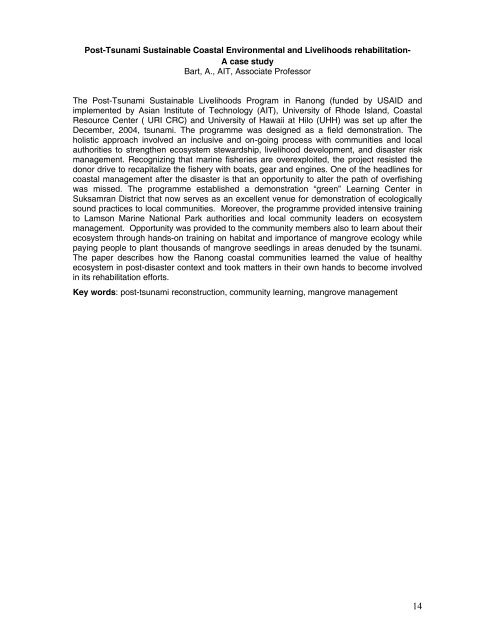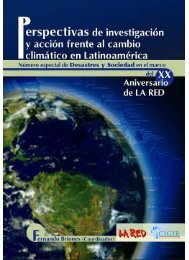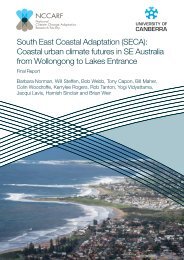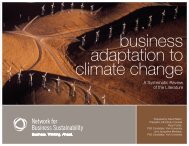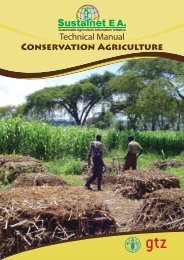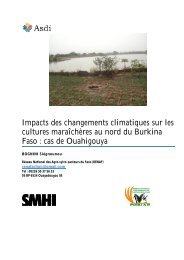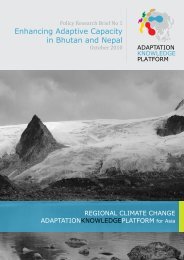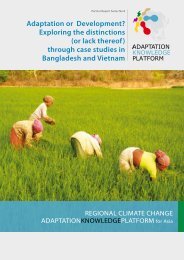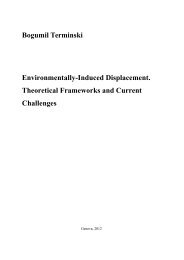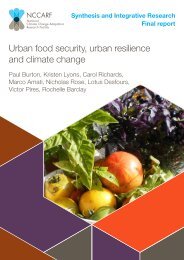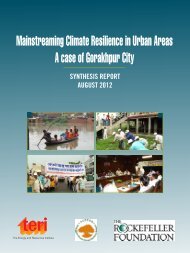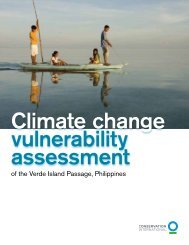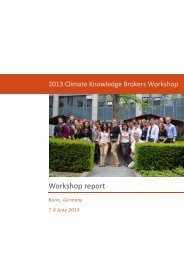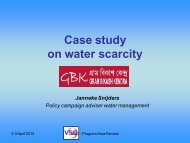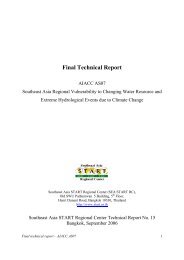Scientific and Technical Symposium on Sustainable Mangrove ...
Scientific and Technical Symposium on Sustainable Mangrove ...
Scientific and Technical Symposium on Sustainable Mangrove ...
Create successful ePaper yourself
Turn your PDF publications into a flip-book with our unique Google optimized e-Paper software.
Post-Tsunami <strong>Sustainable</strong> Coastal Envir<strong>on</strong>mental <str<strong>on</strong>g>and</str<strong>on</strong>g> Livelihoods rehabilitati<strong>on</strong>-A case studyBart, A., AIT, Associate ProfessorThe Post-Tsunami <strong>Sustainable</strong> Livelihoods Program in Ran<strong>on</strong>g (funded by USAID <str<strong>on</strong>g>and</str<strong>on</strong>g>implemented by Asian Institute of Technology (AIT), University of Rhode Isl<str<strong>on</strong>g>and</str<strong>on</strong>g>, CoastalResource Center ( URI CRC) <str<strong>on</strong>g>and</str<strong>on</strong>g> University of Hawaii at Hilo (UHH) was set up after theDecember, 2004, tsunami. The programme was designed as a field dem<strong>on</strong>strati<strong>on</strong>. Theholistic approach involved an inclusive <str<strong>on</strong>g>and</str<strong>on</strong>g> <strong>on</strong>-going process with communities <str<strong>on</strong>g>and</str<strong>on</strong>g> localauthorities to strengthen ecosystem stewardship, livelihood development, <str<strong>on</strong>g>and</str<strong>on</strong>g> disaster riskmanagement. Recognizing that marine fisheries are overexploited, the project resisted thed<strong>on</strong>or drive to recapitalize the fishery with boats, gear <str<strong>on</strong>g>and</str<strong>on</strong>g> engines. One of the headlines forcoastal management after the disaster is that an opportunity to alter the path of overfishingwas missed. The programme established a dem<strong>on</strong>strati<strong>on</strong> “green” Learning Center inSuksamran District that now serves as an excellent venue for dem<strong>on</strong>strati<strong>on</strong> of ecologicallysound practices to local communities. Moreover, the programme provided intensive trainingto Lams<strong>on</strong> Marine Nati<strong>on</strong>al Park authorities <str<strong>on</strong>g>and</str<strong>on</strong>g> local community leaders <strong>on</strong> ecosystemmanagement. Opportunity was provided to the community members also to learn about theirecosystem through h<str<strong>on</strong>g>and</str<strong>on</strong>g>s-<strong>on</strong> training <strong>on</strong> habitat <str<strong>on</strong>g>and</str<strong>on</strong>g> importance of mangrove ecology whilepaying people to plant thous<str<strong>on</strong>g>and</str<strong>on</strong>g>s of mangrove seedlings in areas denuded by the tsunami.The paper describes how the Ran<strong>on</strong>g coastal communities learned the value of healthyecosystem in post-disaster c<strong>on</strong>text <str<strong>on</strong>g>and</str<strong>on</strong>g> took matters in their own h<str<strong>on</strong>g>and</str<strong>on</strong>g>s to become involvedin its rehabilitati<strong>on</strong> efforts.Key words: post-tsunami rec<strong>on</strong>structi<strong>on</strong>, community learning, mangrove management14


